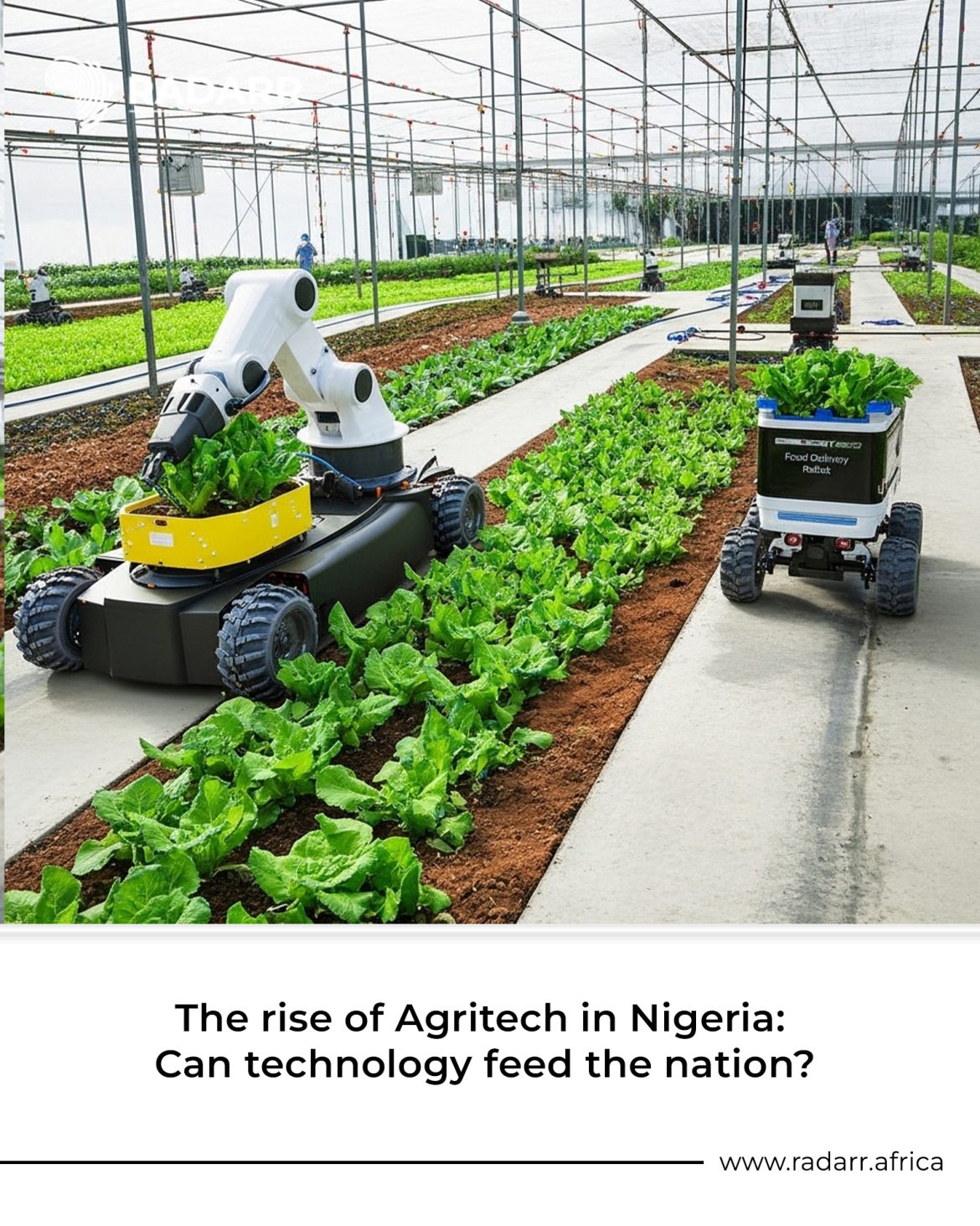Nigeria, often described as the giant of Africa, has always relied heavily on agriculture to sustain its economy and feed its rapidly growing population. From the farmlands of Kaduna to the rice paddies of Edo, millions of Nigerians are engaged in farming, yet the sector has long struggled with inefficiency, poor infrastructure, and limited access to finance and modern tools. Today, a new force is reshaping the landscape—agritech. Technology-driven solutions are now offering farmers smarter ways to plant, harvest, and sell, promising to revolutionize how the country produces and distributes food. The pressing question remains: can technology truly feed the nation?
Agritech in Nigeria is no longer just a concept; it is becoming a reality on farms across the country. Startups are introducing drones that monitor crops for pests and disease, mobile apps that provide weather forecasts and planting schedules, and digital platforms that connect smallholder farmers to buyers and finance. These innovations are helping farmers maximize yields, reduce waste, and access markets that were once beyond reach. In a country where food security remains a persistent challenge, these technological tools are not just convenient—they are essential.
The beauty of agritech lies in its ability to solve multiple problems at once. For decades, Nigerian farmers have battled unpredictable weather, inefficient supply chains, and limited access to credit. With digital platforms, farmers can now receive loans and insurance coverage without the bureaucracy of traditional banks. Market information apps ensure they sell produce at fair prices rather than relying on middlemen who often exploit them. This integration of finance, data, and logistics is transforming the sector from a subsistence activity into a profitable business opportunity, while also contributing to national food security.
E-commerce platforms and agritech marketplaces are also playing a pivotal role in connecting rural farmers to urban consumers. Through apps and websites, fresh produce can move from the farm gate to city homes with minimal delay, reducing spoilage and ensuring fair prices for farmers. Logistics companies are now using AI and route optimization tools to ensure timely delivery, while blockchain and digital record-keeping bring transparency to the supply chain. Such innovations are not only modernizing agriculture but also inspiring confidence among investors who see the sector as ripe for growth and impact.
Government policy and support are key components of this agritech revolution. Programs promoting digital farming, agricultural finance, and rural infrastructure are gaining traction, although challenges remain. Internet penetration is still limited in remote areas, and high data costs can hinder adoption of technology. Nevertheless, partnerships between private tech companies, development agencies, and local cooperatives are steadily bridging these gaps. The focus is increasingly on scalable, sustainable solutions that empower farmers while ensuring long-term economic and social benefits.
Perhaps the most exciting aspect of agritech in Nigeria is its appeal to young entrepreneurs. Tech-savvy youth are now leading startups that combine agriculture with innovation, creating jobs, building export-ready products, and changing the perception of farming from a low-income occupation to a profitable, technology-driven enterprise. By embracing modern methods, these young innovators are showing that farming is not just about toil—it is about strategy, technology, and business acumen.
Despite its potential, agritech is not without obstacles. Farmers and startups alike must contend with power supply issues, inadequate storage facilities, and inconsistent policy enforcement. Access to capital remains a hurdle, particularly for small and medium-sized enterprises seeking to scale their innovations. Moreover, widespread adoption depends on training and education, as many traditional farmers are still unfamiliar with digital tools. Overcoming these challenges will require coordinated effort from government, private sector, and development partners.
The rise of agritech also highlights an opportunity for Nigeria to assert itself as a global leader in innovative agriculture. With a population exceeding 220 million and fertile land across multiple ecological zones, the country has both the demand and the capacity to develop scalable, export-oriented solutions. By combining technology, investment, and policy support, Nigeria can address domestic food needs while also creating opportunities for regional and global trade. This is more than just modernizing farming—it is about transforming the entire economy and building resilience against future shocks.
For investors, agritech represents a convergence of impact and profit. Platforms that improve productivity, reduce post-harvest losses, and expand access to finance deliver measurable social benefits while generating financial returns. Agricultural technology is becoming an attractive avenue for venture capital, development finance, and corporate partnerships. The message is clear: supporting agritech is not only a way to back a high-growth sector, it is a strategic move to ensure that Nigeria can feed its people sustainably and profitably.
In conclusion, agritech in Nigeria is no longer a vision of the future—it is happening here and now. By leveraging drones, apps, digital marketplaces, and innovative financing, the sector is tackling age-old problems and creating opportunities for farmers, investors, and consumers alike. While challenges remain, the pace of innovation, the involvement of young entrepreneurs, and the growing interest from investors signal that Nigeria is on a path to transform its agricultural sector. The key question is not whether technology can feed the nation, but whether the nation is ready to embrace the change, invest wisely, and support the farmers who will ultimately turn innovation into abundance.
